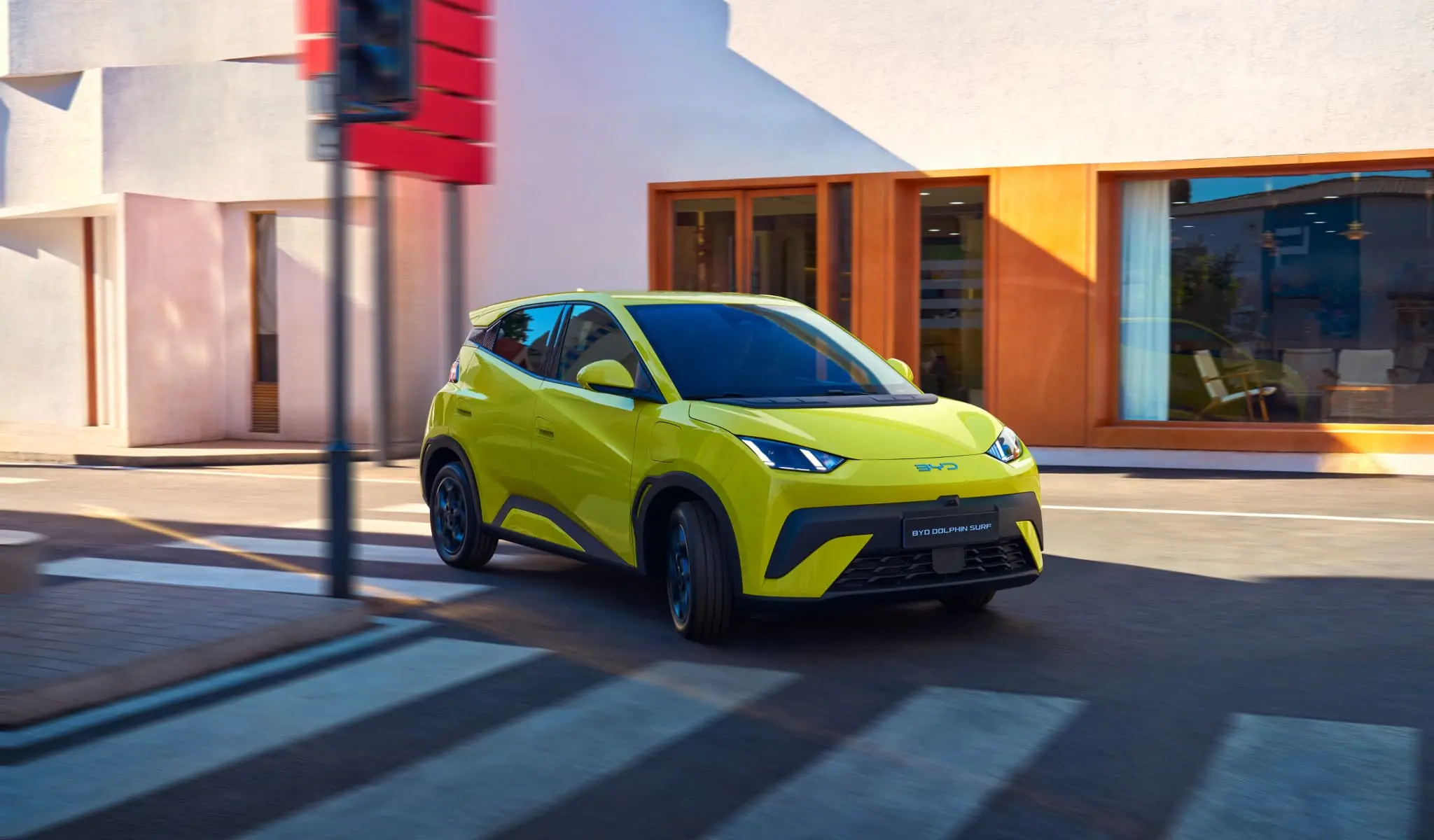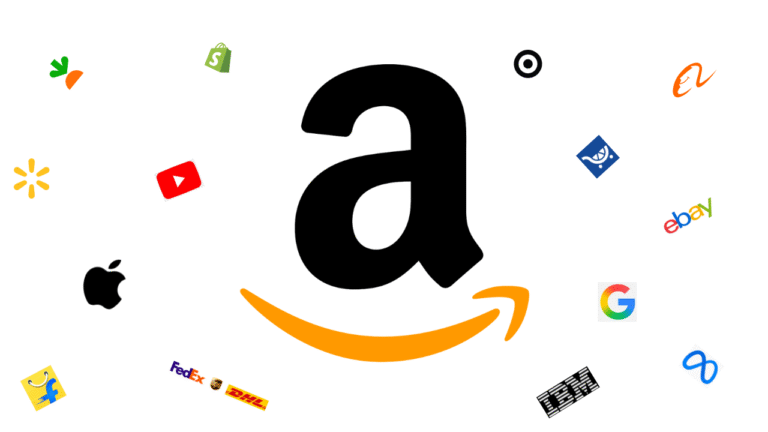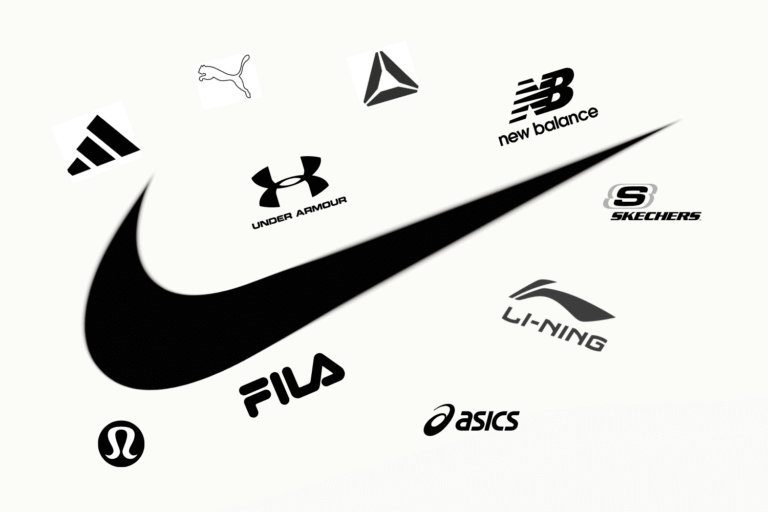Tesla Inc. is a pioneering company that created a strong commercial market for electric vehicles. Before Tesla, many companies like Fisker Automotive, AC Propulsion, and Byton entered the EV space, but failed due to financial and production challenges.
While it’s fair to say that Tesla made electric mobility mainstream, today, many companies are competing with Tesla across its business segments. Whether it’s electric vehicles, solar energy, energy storage, EV charging infrastructure, or its Full Self-Driving (FSD) software.
Let’s break down each segment in which Tesla operates and understand its key competitors in the global market.
Did you know?
Tesla earned $2.76 billion from selling climate credits, constituting over 38% of its net profit in FY 2024.
This credit money can be seen as temporary to such an extent, as competition is rising, and the demand for Tesla has plummeted globally over the last quarters, including politically, technologically, and financially.
Electric Vehicles (EVs)
Tesla’s Offering
Tesla has a wide range of EV vehicles, catering to both mass-market and premium buyers.
- Model S (2012) – Luxury sedan with long-range and performance.
- Model 3 (2017) – Affordable mass-market sedan
- Model X (2015) – Luxury SUV with Falcon-wing doors.
- Model Y (2020) – Mid-size SUV aimed at families.
- Cybertruck (2023) – Electric pickup with a unique design.
- Roadster (expected by 2026)– Tesla’s high-performance electric sports car (upcoming).
- Semi (expected by 2026)- Class 8 truck for logistics and freight.
Mass-Market EVs: Alternatives to Tesla
These companies compete with Tesla’s Model 3 and Model Y, aiming to offer EVs at accessible price points.
BYD (China)
BYD is currently Tesla’s biggest global rival in terms of EV volume. It offers both battery-electric and plug-in hybrid models at affordable rates. Models like the BYD Dolphin, Yuan Plus, and Seal cater to the growing demand in both China and global markets.

The brand has rapidly expanded in Latin America, Southeast Asia, and Europe, leveraging its vertical integration strategy, manufacturing batteries, semiconductors, and vehicles in-house.
Volkswagen Group (Germany)
Volkswagen (VW) has invested over $100 billion in its electric vehicle (EV) transition. The ID series, including the ID.3, ID.4, and ID.7, targets the mass EV market in Europe and China.
Meanwhile, Audi offers premium models like the e-tron series, competing directly with Tesla. VW plans to sell only EVs in Europe by 2033, challenging Tesla’s market share.
Hyundai/Kia (South Korea)
Hyundai’s Ioniq 5 and Ioniq 6, as well as Kia’s EV6, are strong competitors in design, performance, and price. They’re built on the E-GMP platform, offering ultra-fast charging and advanced driver-assistance systems.
The Hyundai Motor Group is one of the few global automakers earning critical acclaim for its innovation and value in EVs.
Luxury EVs: Alternatives to Tesla
Targeting high-income consumers and corporate users, these brands compete with Tesla’s Model S and X.
Lucid Motors (USA)
Lucid’s Lucid Air targets the ultra-luxury electric segment. It boasts a longer range than the Tesla Model S and high-end interior finishes.
Lucid emphasizes superior engineering and high performance, though its production scale remains far behind Tesla’s.
Mercedes-Benz (Germany)
Mercedes’ EQS and EQE series reflect its luxury DNA in the EV space. The EQS directly competes with the Model S and Lucid Air, providing comfort, advanced infotainment (MBUX Hyperscreen), and a smooth ride experience. Mercedes is expanding its EV offerings rapidly with plans for a full electric fleet.
BMW (Germany)
BMW’s i4, i7, and iX are positioned to compete in both the executive sedan and luxury SUV categories. Known for sporty driving dynamics, BMW is leveraging its existing loyal customer base to transition smoothly into the EV era.
Pickup Trucks
Tesla’s Offering
Cybertruck – This futuristic all-electric pickup truck is designed with an exoskeleton frame, armored glass, and high torque performance. It’s expected to offer significant towing capacity and autonomous driving.
Pickup Truck: Alternatives to Tesla
Ford (USA) – F-150 Lightning
Ford’s electric version of the best-selling F-150 pickup leverages strong brand loyalty. It provides a blend of rugged utility and modern EV tech. It’s aimed at traditional truck buyers making their first leap into electric.
Rivian (USA) – R1T Pickup
Rivian is a startup focused on adventure-style EVs. The R1T pickup offers off-road capability, ample storage, and smart features like the gear tunnel and camp kitchen.
Rivian is also Amazon’s official delivery van supplier, which supports its financial backing and credibility.
Commercial EVs
Tesla’s Offering
Tesla Semi – A Class 8 electric truck aimed at transforming the freight and logistics industry. With rapid acceleration, regenerative braking, and low cost of ownership, Tesla’s Semi targets long-haul trucking fleets.
Commercial EVs: Alternatives to Tesla
Volvo Trucks and Freightliner
These legacy manufacturers are electrifying their commercial fleets with Volvo VNR Electric and Freightliner eCascadia. Both target short- and mid-haul routes and are backed by decades of experience in the commercial vehicle segment.
Nikola Motors (USA)
Nikola focuses on battery-electric and hydrogen fuel cell trucks. While it has faced multiple controversies and management issues, the company is still pursuing the commercialization of heavy-duty electric trucks.
BYD (China)
Apart from passenger EVs, BYD is a global leader in electric buses, delivery vans, and light-duty trucks. It dominates several developing and developed markets with cost-effective fleet solutions.
Solar Energy
Tesla’s Offering
- Tesla Solar Panels – Traditional rooftop panels.
- Tesla Solar Roof – Innovative solar shingles that replace traditional roofing materials while generating electricity.
Tesla aims to offer complete residential energy solutions when combined with its battery systems.
Solar Energy: Alternatives to Tesla
SunPower (USA)
One of the oldest and most reputable solar panel providers in the US. Offers high-efficiency solar panels and turnkey installations. It caters to residential and commercial clients and is a leader in tech integration.
Sunrun (USA)
Offers solar panel installation and battery backup services (including Tesla’s own Powerwall in some cases). It specializes in rooftop systems through financing options like leasing or PPAs (Power Purchase Agreements).
Vivint Solar (USA)
Acquired by Sunrun in 2020. It previously operated as a direct-to-home solar installer. Today, it complements Sunrun’s scale and customer base.
Energy Storage
Tesla’s Offering
- Powerwall – Residential battery backup solution.
- Powerpack – Commercial-scale energy storage.
- Megapack – Utility-scale energy storage, often used by grid operators.
Tesla’s energy storage systems work seamlessly with its solar products and are integral to grid stabilization, time-of-use energy optimization, and backup power.
Energy Storage: Alternatives to Tesla
LG Energy Solution (South Korea)
A key player in lithium-ion battery tech, LG offers residential and commercial storage systems. Products like RESU (Residential Energy Storage Unit) compete directly with Powerwall.
Panasonic (Japan)
A long-time Tesla partner at Gigafactory Nevada, Panasonic also sells its energy storage systems globally. It continues to supply batteries to other major automakers and renewable energy firms.
Enphase Energy (USA)
Known for microinverters, Enphase has added Encharge home battery systems to its offerings. It competes in the residential energy storage market, providing fully integrated solar-plus-storage systems.
Sonnen (Germany)
Backed by Shell, Sonnen offers premium smart energy storage solutions. Its focus is on energy independence and microgrids, mainly in Europe. It combines AI with battery systems for intelligent power usage.
Autonomous Driving / AI Software
Tesla’s Offering
Full Self-Driving (FSD) – Tesla’s in-house driver-assistance system designed to eventually deliver Level 4-5 autonomy. It uses a vision-based AI approach and continuous fleet learning.
Tesla believes that vision (cameras) and AI are enough for self-driving, unlike competitors that use LiDAR and radar in addition.
Autonomous Driving Software: Alternatives to Tesla
Waymo (USA)
A subsidiary of Alphabet (Google), Waymo is a Level 4 autonomous driving leader. It uses a combination of LiDAR, radar, and AI. It already operates robo-taxi fleets in Phoenix and parts of San Francisco.
Mobileye (Israel)
Owned by Intel, Mobileye is a pioneer in ADAS (Advanced Driver Assistance Systems). It supplies tech to many OEMs and develops scalable autonomous solutions that integrate HD maps, LiDAR, and custom chips.
Motional (Aptiv + Hyundai JV)
A joint venture focused on producing autonomous ride-hailing vehicles. It has partnered with Lyft and other mobility providers for future urban deployment.
EV Charging Infrastructure
Tesla’s Offering
Supercharger Network – One of the most extensive and reliable global fast-charging networks, exclusive to Tesla users (with limited opening to others in Europe and North America). It offers high-speed DC fast charging with up to 250 kW capacity.
EV Charging Network: Alternatives to Tesla
ChargePoint (USA)
One of the largest public charging networks in North America. It has over 200,000 charging spots, primarily AC (Level 2) stations. Known for business and fleet integrations.
EVgo (USA)
A public fast-charging network focused on urban areas and highways. EVgo offers Level 3 fast chargers and has partnered with many automakers and retailers.
Electrify America (USA)
Created by Volkswagen as part of the Dieselgate settlement. Offers ultra-fast chargers (up to 350kW) across the US. It’s open to all EV brands and has growing coverage.
Blink Charging (USA)
Expanding its network aggressively with a mix of Level 2 and DC fast chargers. Blink targets municipal, commercial, and fleet customers and is actively installing chargers in schools, airports, and residential complexes.
Conclusion
Tesla’s diverse business model spreads across nearly every critical pillar of the clean energy transition – vehicles, infrastructure, software, storage, and generation. While it continues to innovate, legacy automakers, startups, and tech giants are racing to capture market share in these fast-growing segments.
Each of Tesla’s offerings now faces tough competition, not just from emerging players but from established companies with strong financial backing and manufacturing expertise. However, Tesla’s first-mover advantage, vertically integrated supply chain, and tech-driven brand continue to provide it with a competitive edge.
As the clean tech ecosystem matures, the ultimate winner may not be a single firm, but the consumer, who will benefit from more innovation, better choices, and accelerated progress toward a sustainable future.
I hope you find this Tesla Competitors article helpful. If so, please read our other articles.
Share this article on your socials.


